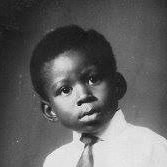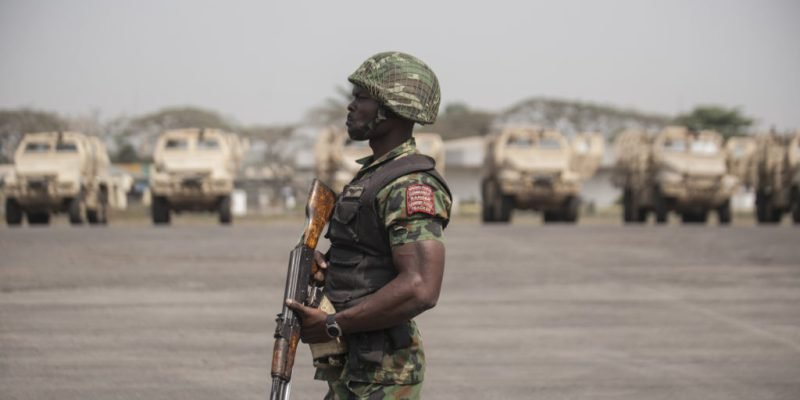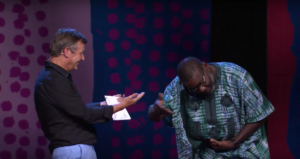It is inescapable given the present outrage expressed in the #Endsars movement not to connect the systemic impunity of uniformed officers with then and now. The disdain and disrespect for civilians probably started with the coup of 1966. The armed forces in the course of their rise, State Capture and decades-old grip on political power created a pervasive culture of oppressing ‘bloody civilians’ which the Nigeria Police adopted and perfected. Today, the police believe that they are above the law and the military still do not believe that they are subject to the constitutionality of being under civil authority. Since it has been near impossible to ‘civilise the soldier’ and make ‘the police your friend,’ the inevitable consequence is what is now playing out in the streets of Nigeria. Enjoy.
PS. The last word is a reference to a major scandal that broke when Nigeria changed its currency overnight, trapping and invalidating millions of ‘stolen’ naira, save the 53 suitcases of a prominent Emir that was allowed to go through customs unchecked.
The drama began just after I pulled out of the petrol station after a fruitless search for engine oil. Unusually, a taxi cab had courteously slowed down to a stop, to allow me entry across his lane to join the traffic coming from the opposite side. Eyeing the cab suspiciously, I slowly made my way to the other side, making absolutely sure that there were no cars coming to my right.
In spite of what the driving instructions manual says, I was apparently looking the wrong way, for as I steered fully into the outbound traffic, I saw it trundling down aggressively towards me. ‘IT’ was one of those monstrous six-wheeled amphibious military vehicles better suited for fording rivers deep into enemy territory, but equally useful for trampling afoot irreverent journalists in battered beetles.
By a miracle, and some deft manoeuvring on my part, I managed to avoid what would undoubtedly have been a very messy affair… for my beetle and me. Screeching to a halt a few yards away and surprised to be alive, I quickly recovered my wits enough to shout “WAI, WAI, WAI!” at the driver of the behemoth, who probably didn’t notice me or care that he was driving on the wrong lane.
Incensed by my effrontery (how dare I, a civilian, admonish him, a soldier) he slammed his breaks to a halt and spat out a reply. His reply was an evocation for divine justice against my dear mother. Shored up by my rectitude in the matter, and angered by the evocation against maternity, I instinctively retorted…fire for fire, you might say. I went beyond a similar evocation for divine retribution against him, his mother and the rest of his relatives (both dead and living) to casting serious aspersions about his legitimacy, strongly insinuating the illegitimate circumstances surrounding his birth.
It should be noted that his dialogue was cried out in Pidgin English. He was, of course, livid, and as he and his crony alighted, he dared me to wait for them. At this point, it occurred to me that ‘discretion was the better part of valour’, and so, revving my engine and changing gears quickly, I fled… otherwise, I would now be recounting this story from the morgue.
This episode, like scores of other similar, but unsung, lamentations, serves to illustrate the day-to-day relationship between soldiers and the general public at large. Soldiers seem to have a traditionally conditioned disdain for civilians, whom they regard as sloppy and indisciplined. Although this attitude runs right through the ranks, it is at the nether ranks, or in military parlance, “other ranks”, that this intolerance is compounded. Military officers (at least, the ones I know) are arrogant but disciplined, and are not given to unbridled displays of lawlessness and indiscipline, as is becoming increasingly popular with the “other ranks”.
The immediate diagnosis for this kind of behaviour is rooted in psychology. One gets the distinct impression that many of them would be roaming the streets mugging people, were it not for the benevolence of the institution of the Nigerian Army. Now that they are in uniform, they possess the legitimate means for offsetting their complexes and being ‘somebody’ at last. Or perhaps they are just not used to the ‘silly ways’ of us civilians. If so, then there is a dire need to ‘civilise them’.
After what was more or less a five-year ‘civilian interregnum’ the military is back, and soldiers previously cloistered in barracks now mingle freely with civilians. But unfortunately, they still hold on tenaciously to what can be described as the ‘barracks mentality’, which itself engenders a narrow-minded perspective of public life around. The logic is simple, “if it does not concern the military in any way, then it is irrelevant and unimportant.”
But the truth of the matter is, there is a bigger and greater Nigerian beyond the high fences of the barracks. It is sickening and deeply ironic to see soldiers pulverising or extorting a member of the same public they have sworn under oath to protect. And usually, they get away with it, safe in the anonymity of their numbers, and by the simple fact that the ones most commonly seen on the streets do not wear nametags. Since it is near impossible to investigate every case of uniformed brutality and lawlessness, a sensible option is to go the way of the police and re-educate soldiers about their conduct.
Earlier, when I suggested that the other ranks largely should be civilised, I went beyond the ordinary meaning of the word, to imply that they should be made to understand the mentality of civilians. Already, in the eyes of even the peaceful and law-abiding citizens, soldiers have replaced the reprehensible ‘kill-and-go’ of Sunday ‘Shoot At Sight’ Adewusi, as the bogeymen to be feared, second only to armed robbers.
It is bad enough having to live with NEPA problems and astronomical food prices, but to have soldiers (whom we regard as our saviours) terrorising the public is a bit too much.
LAST WORD
WAI was 53 suitcases allowed to go unchecked at the Murtala Muhammed Airport, during the currency exchange exercise?
WAI has the Emir’s name not been mentioned? WAI was an army officer involved?
Too many WAI’s, not enough answers.
The Punch,
Saturday, May 5, 1984



